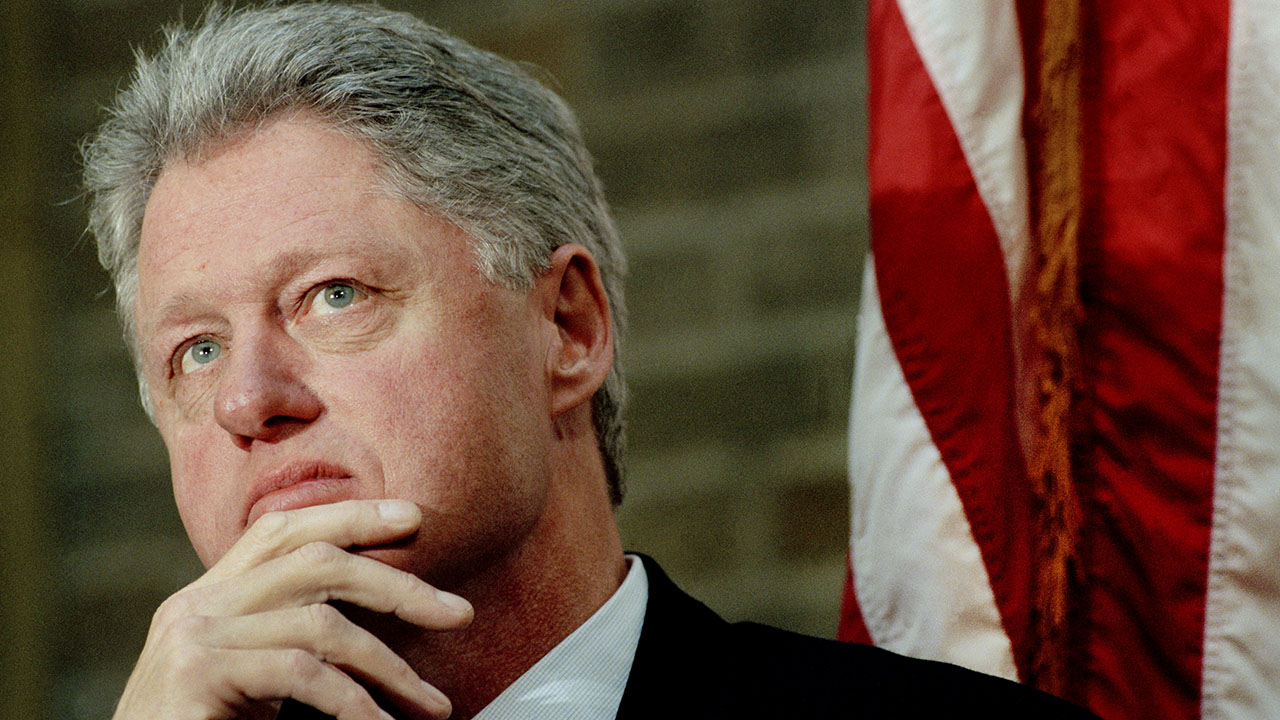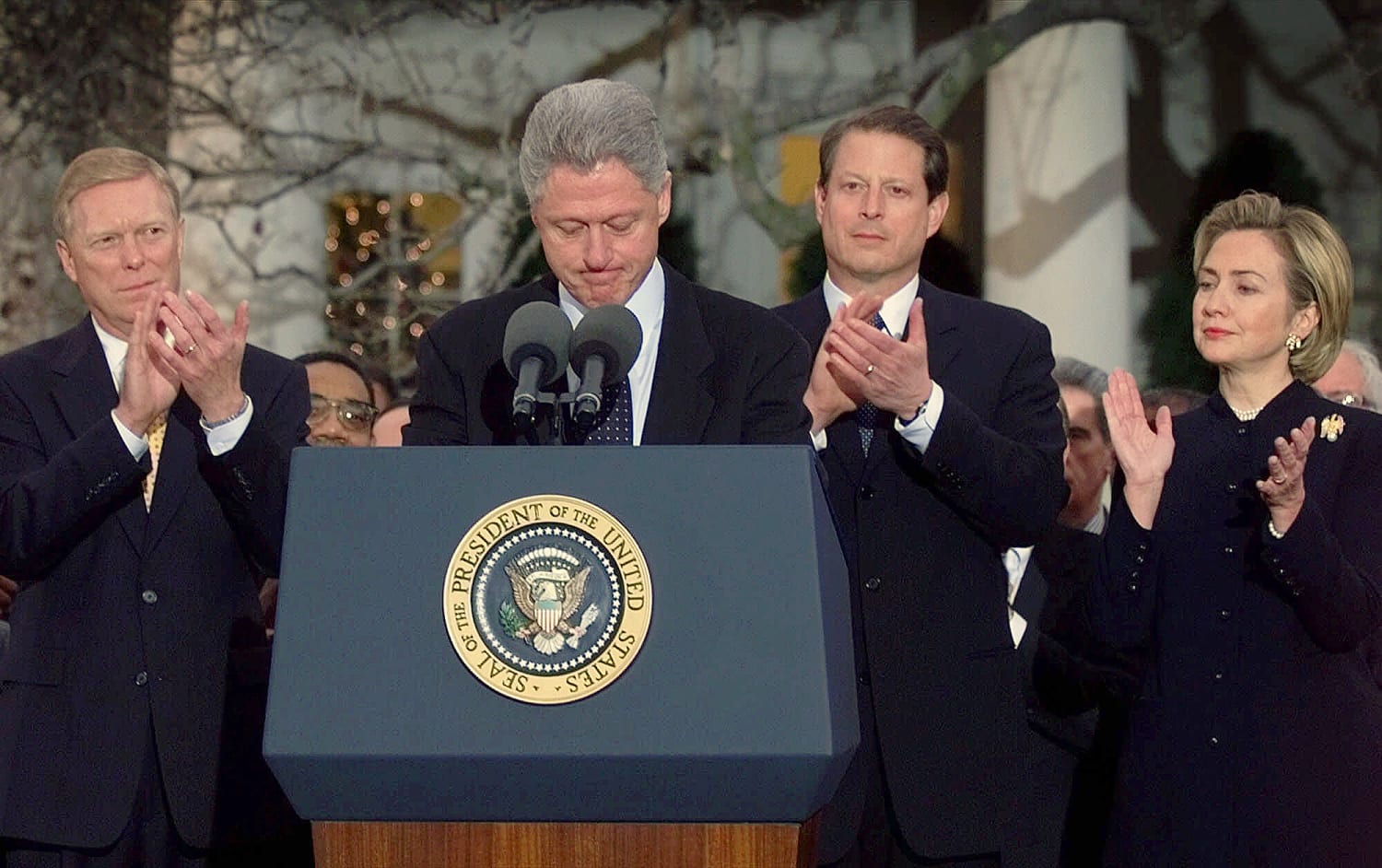
Bill Clinton, who held the esteemed position of the 42nd President of the United States, served two full terms from 1993 to 2001. His time in office is frequently characterized by significant economic growth and a series of political controversies that captured national attention. However, to truly understand Bill Clinton, one must look beyond the headlines and delve into the complexities of his life and career. Born on August 19, 1946, in Hope, Arkansas, Clinton’s journey to the presidency was marked by a commitment to public service and a passion for politics. He was a skilled orator and a charismatic leader, known for his ability to connect with people from diverse backgrounds. During his presidency, he implemented policies that contributed to a booming economy, including welfare reform and the North American Free Trade Agreement (NAFTA). Yet, his administration was also marred by scandals, most notably the Monica Lewinsky affair, which led to his impeachment by the House of Representatives. Despite these controversies, Clinton’s legacy includes significant achievements in areas such as education, healthcare, and international relations. As we explore the multifaceted life of Bill Clinton, we gain insight into the man behind the political persona and the lasting impact he has had on American society.
Early Life and Background

Born in Hope, Arkansas
Bill Clinton entered the world on August 19, 1946, in the small town of Hope, Arkansas. His early life was marked by tragedy, as his father, a traveling salesman, passed away in a car accident before Clinton was even born. This left his mother, Virginia Dell Blythe, to raise him alone for a time. Later, she remarried Roger Clinton, who became Bill’s stepfather. Growing up in a modest household, Bill faced numerous challenges that would shape his character and resilience, instilling in him a deep understanding of the struggles faced by many American families.
Education: The Foundation of a Leader
Clinton’s educational journey laid the groundwork for his future as a prominent leader. He began his higher education at Georgetown University, where he pursued a degree in international affairs, graduating in 1968. His academic pursuits did not stop there; he was awarded the prestigious title of Rhodes Scholar, which allowed him to study at the University of Oxford. This experience broadened his worldview and deepened his understanding of global issues. He then attended Yale Law School, where he honed his legal skills and further developed his political ambitions.
Political Awakening
A significant turning point in Clinton’s life occurred in 1963 when he had the opportunity to meet President John F. Kennedy. This encounter was not just a fleeting moment; it ignited a profound passion for politics within him. The inspiration he drew from Kennedy’s vision and charisma marked the beginning of Clinton’s lifelong commitment to public service and his desire to make a meaningful impact in the world of politics.
Political Career Before the Presidency

From Attorney General to Governor
Bill Clinton’s political journey began to gain significant momentum when he was appointed as the Attorney General of Arkansas in 1976. This pivotal role marked the start of his ascent in the political arena. Just two years later, in 1978, he made history by becoming the youngest governor in Arkansas’s history, a position that allowed him to implement his vision for the state and connect with the electorate on a deeper level. His tenure as governor was characterized by a focus on education reform and economic development, which resonated with many Arkansans.
Challenges and Comebacks
Despite his early successes, Clinton faced a significant challenge in 1980 when he lost his bid for re-election, a setback that could have derailed his political ambitions. However, demonstrating remarkable resilience and determination, he made a comeback in 1982, reclaiming the governorship. Over the following years, he was re-elected multiple times, a testament to his ability to adapt and respond to the needs of his constituents. Clinton’s pragmatic approach and centrist policies played a crucial role in restoring the trust of the voters, allowing him to navigate the complexities of state politics effectively and solidifying his reputation as a capable leader.
Presidency: A New Era

Winning the White House
Bill Clinton officially announced his candidacy for the presidency in 1991, embarking on a challenging journey toward the highest office in the United States. His campaign was not without its hurdles; he faced numerous allegations regarding infidelity that threatened to derail his efforts. Despite these challenges, Clinton demonstrated remarkable resilience and strategic campaigning, ultimately emerging victorious in the highly contested 1992 presidential election. He defeated the incumbent president, George H.W. Bush, marking a significant political shift in the country and setting the stage for his transformative presidency.
Economic Prosperity
Throughout his time in office, President Clinton presided over a period of unprecedented economic growth, characterized by the longest peacetime economic expansion in American history. During this time, unemployment rates saw a significant decline, and for the first time in decades, the nation achieved a budget surplus. Clinton’s administration implemented a series of policies aimed at fostering job creation and enacting welfare reform, which played a crucial role in revitalizing the economy and improving the lives of many Americans.
Key Economic Policies
| Policy | Description |
|---|---|
| NAFTA | The North American Free Trade Agreement was established to enhance trade relations between the United States, Canada, and Mexico, aiming to eliminate trade barriers and promote economic cooperation among the three nations. |
| Welfare Reform | This initiative restructured welfare programs to encourage employment and reduce long-term dependency on government assistance, emphasizing personal responsibility and work as a pathway to self-sufficiency. |
| Balanced Budget | Clinton’s administration successfully achieved a budget surplus through a combination of fiscal discipline, strategic spending cuts, and robust economic growth, marking a significant turnaround in the federal budgetary landscape. |
Controversies and Impeachment

The Monica Lewinsky Scandal
In 1998, Clinton became the second U.S. president to be impeached, primarily due to his affair with White House intern Monica Lewinsky. The scandal dominated headlines and raised questions about his integrity.
Acquittal and Aftermath
Clinton was acquitted by the Senate in 1999, but the impeachment left a lasting mark on his presidency. Despite the controversies, he maintained a high approval rating, showcasing his resilience.
Post-Presidency: A Continued Influence

Global Humanitarian Efforts
After leaving office, Clinton remained active in politics and humanitarian work. He founded the Clinton Foundation, focusing on global health, climate change, and economic development.
Public Speaking and Writing
Clinton became a sought-after speaker, sharing his insights on leadership and governance. His memoir, “My Life,” offers a candid look at his experiences and reflections.
Legacy: A Complex Figure

Assessing Clinton’s Impact
Clinton’s presidency is often viewed through a dual lens of economic success and personal scandal. His policies reshaped the Democratic Party and left a lasting impact on American politics.
Lessons Learned
What can we learn from Clinton’s journey? His story is a reminder that leadership is not just about policies but also about personal integrity and resilience in the face of adversity.

Bill Clinton’s life and presidency are a tapestry of triumphs and trials. From his humble beginnings in Arkansas to the heights of the White House, his journey is a testament to the complexities of leadership. Whether you admire him or critique him, one thing is clear: his influence on American history is undeniable.

